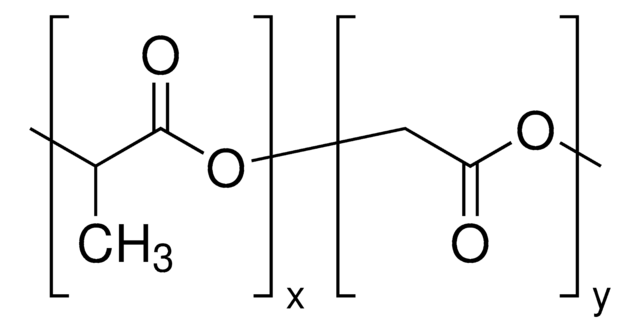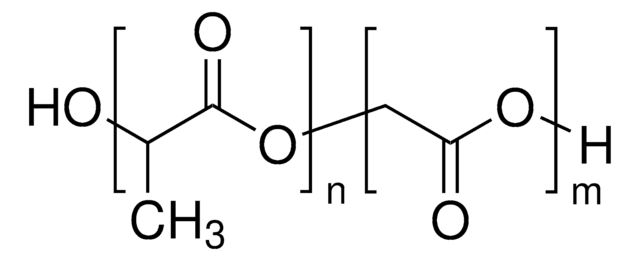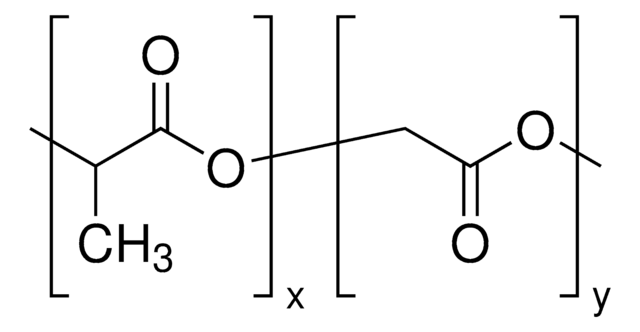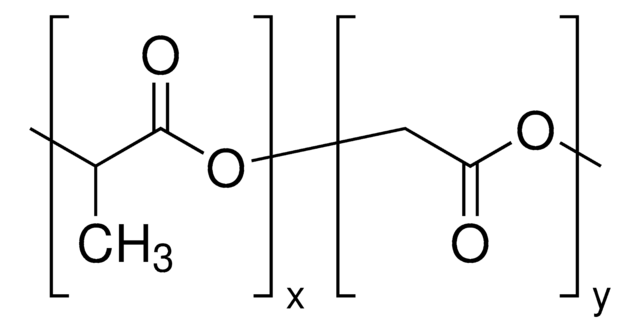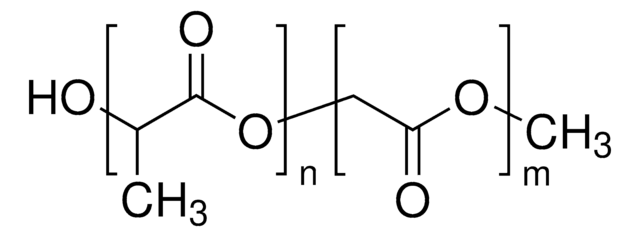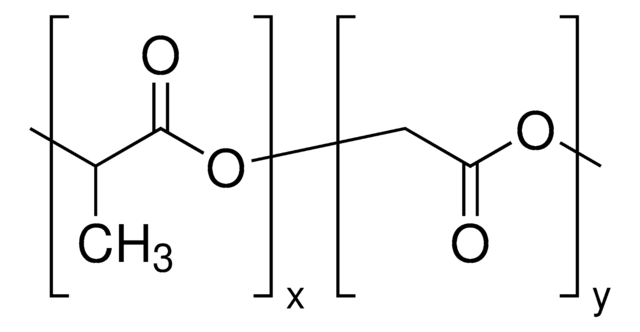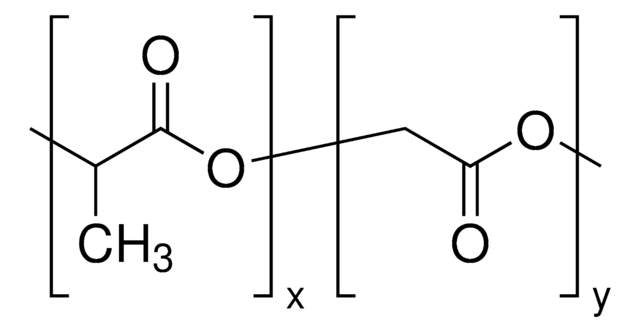719919
Resomer® RG 752 H, Poly(D,L-lactide-co-glycolide)
acid terminated, lactide:glycolide 75:25, Mw 4,000-15,000
Sinónimos:
PLGA
About This Item
Productos recomendados
Quality Level
form
(Powder or Solid or Chunk(s))
feed ratio
lactide:glycolide 75:25
mol wt
Mw 4,000-15,000
degradation timeframe
<6 months
impurities
≤0.1% Sulfated Ash (CONF0010 Conforms)
viscosity
0.14-0.22 dL/g, 0.5 % in chloroform(25 °C, Ubbelohde) (size 0c glass capillary viscometer)
transition temp
Tg 42-46 °C
storage temp.
2-8°C
InChI
1S/C6H8O4.C4H4O4/c1-3-5(7)10-4(2)6(8)9-3;5-3-1-7-4(6)2-8-3/h3-4H,1-2H3;1-2H2
InChI key
LCSKNASZPVZHEG-UHFFFAOYSA-N
General description
Legal Information
related product
Storage Class
11 - Combustible Solids
wgk_germany
WGK 3
flash_point_f
Not applicable
flash_point_c
Not applicable
Elija entre una de las versiones más recientes:
¿Ya tiene este producto?
Encuentre la documentación para los productos que ha comprado recientemente en la Biblioteca de documentos.
Los clientes también vieron
Artículos
Interest in utilizing biodegradable polymers for biomedical applications has grown since the 1960s.
Synthetic aliphatic polyesters dominate resorbable biomaterials in clinical use.
Synthetic aliphatic polyesters dominate resorbable biomaterials in clinical use.
Synthetic aliphatic polyesters dominate resorbable biomaterials in clinical use.
Nuestro equipo de científicos tiene experiencia en todas las áreas de investigación: Ciencias de la vida, Ciencia de los materiales, Síntesis química, Cromatografía, Analítica y muchas otras.
Póngase en contacto con el Servicio técnico

